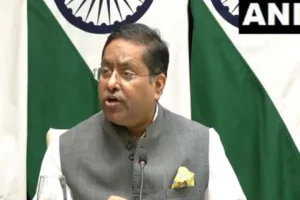Union minister Harsimrat Badal’s resignation in protest against the Cabinet decision to initiate reforms in the agriculture sector by clearing three ordinances is unfortunate. For the proposed ordinances, which will undo some of the most regressive socialist era laws, free the farmer from hoarding regulations and give him the choice to sell to the buyers who pay him the best price. In no way the three amendments can be construed as anti-farmer.
The ordinances are enabling provisions, not debilitating measures. Resistance to them is politics pure and simple; indeed it is dirty politics.
The three ordinances are the Farmers Produce Trade and Commerce (Promotion and Facilitation) Ordinance, 2020, the Farmers (Empowerment and Protection) Agreement; and the Essential Commodities (Amendment) Ordinance, 2020.
Harsimrat Badal tweeted later, “I have resigned from Union Cabinet in protest against anti-farmer ordinances and legislation. Proud to stand with farmers as their daughter & sister.”
But the ordinances are not anti-farmer; protests against them are, rooted in politics and stupidity as they are. Her party, Shiromani Akali Dal, had been supporting the ordinances till a month ago; its position changed 180 degrees when a stir, organized by doctrinaire and ill-informed activists, gathered momentum.
“Farm Bills clearing Lok Sabha is a historic moment for the farmers in the country and the agricultural sector. These Bills, in true sense, will eliminate bottlenecks and middlemen,” Prime Minister Narendra Modi tweeted in Hindi. He also rightly said in a tweet, “A lot of people are trying to mislead the farmers. I want to assure my brothers that MSP and government purchase will continue. These bills, in true sense, are meant to empower the farmers.”
Bharatiya Janata Party president J.P. Nadda also resolutely defended the Bills. “First, peasants were in slavery. Prime Minister Modi gave a call to liberate farmers. This Bill gives them the freedom to choose whether the farmer sells his crop in mandi or sells it in any corner of the country,” said Nadda.
Political rhetoric apart, the BJP chief’s statement is not without merit. The extant laws practically tie down agriculturists to the mandis and the rich middlemen running them.
Nadda also raised an important point: “The Congress party had said in its manifesto that we will bring the farmers out from APMC, the Essential Commodities Act has rusted, we will change it. Modiji has shown the way today by doing it.”
The opponents of the proposed agricultural rules are also being economical with the truth when they say that the minimum support price (MSP) is being done away with. The Modi government has flatly denied this charge. Further, no decision has been taken to end MSPs; there is not even a move in that direction.
Therefore, the entire resistance to the three ordinances is politically motivated and ideologically inspired. Thankfully, the government has not buckled under pressure from the opponents of the Bills and the agitating farmers in Punjab and Haryana..



















